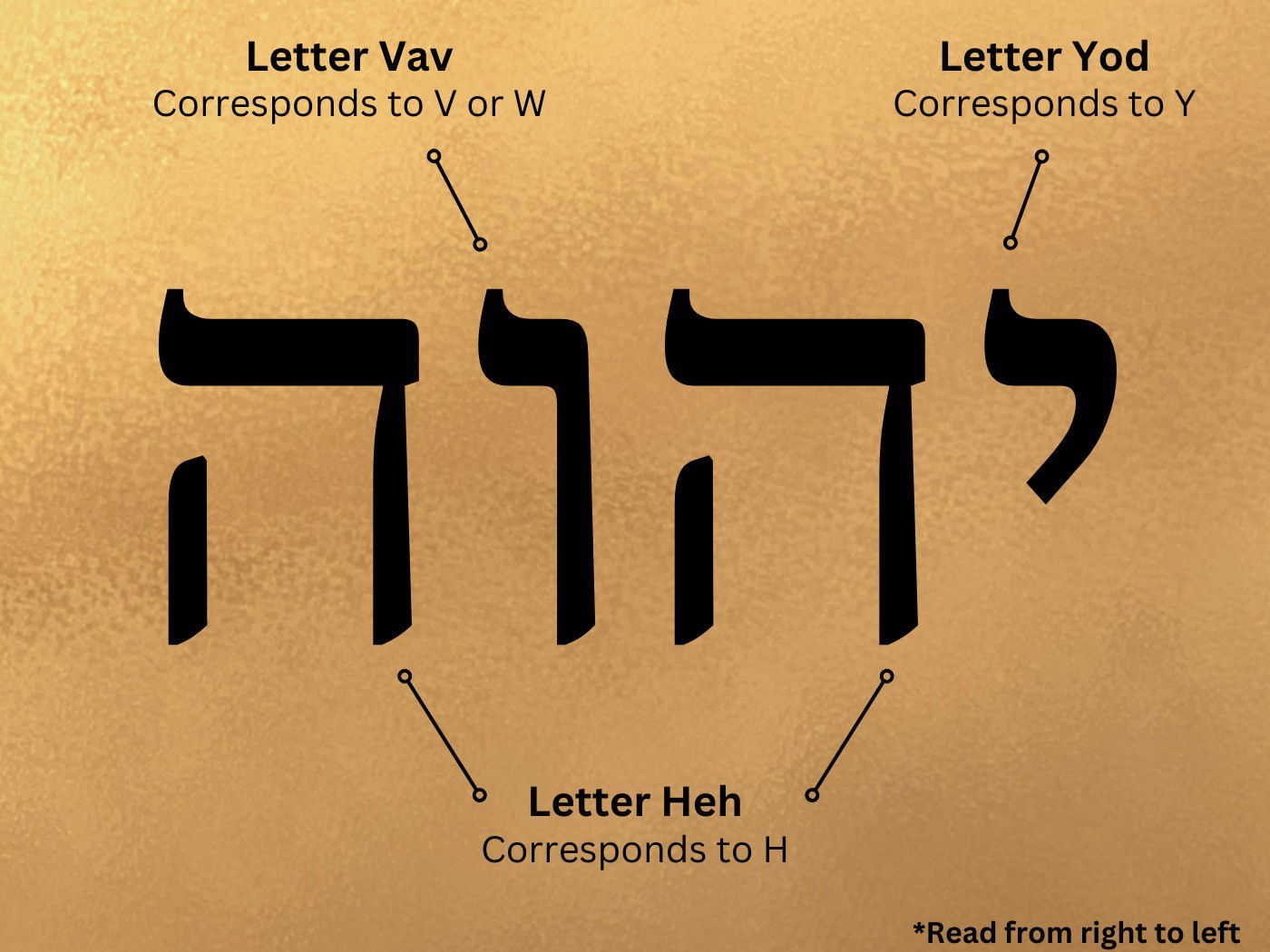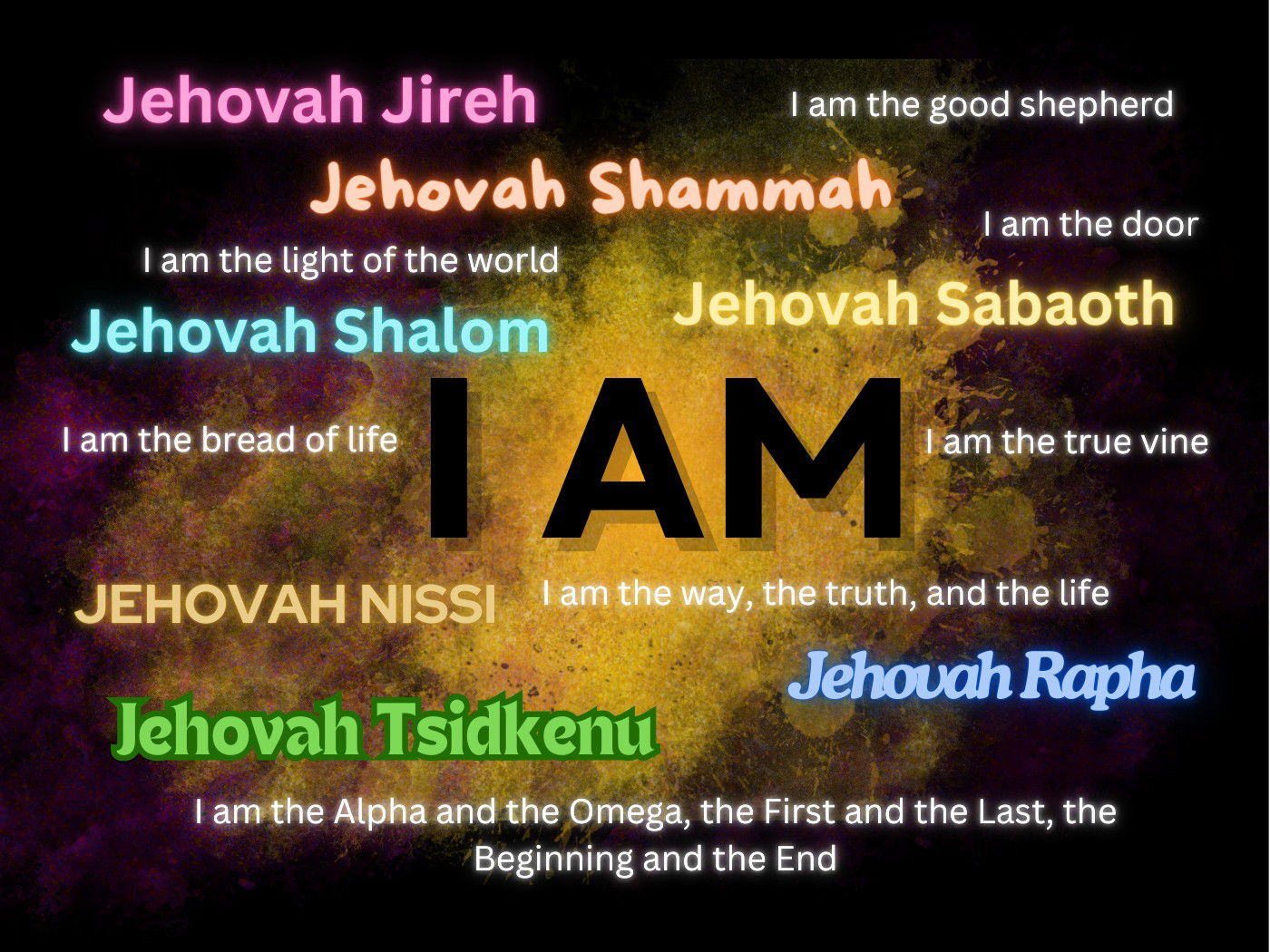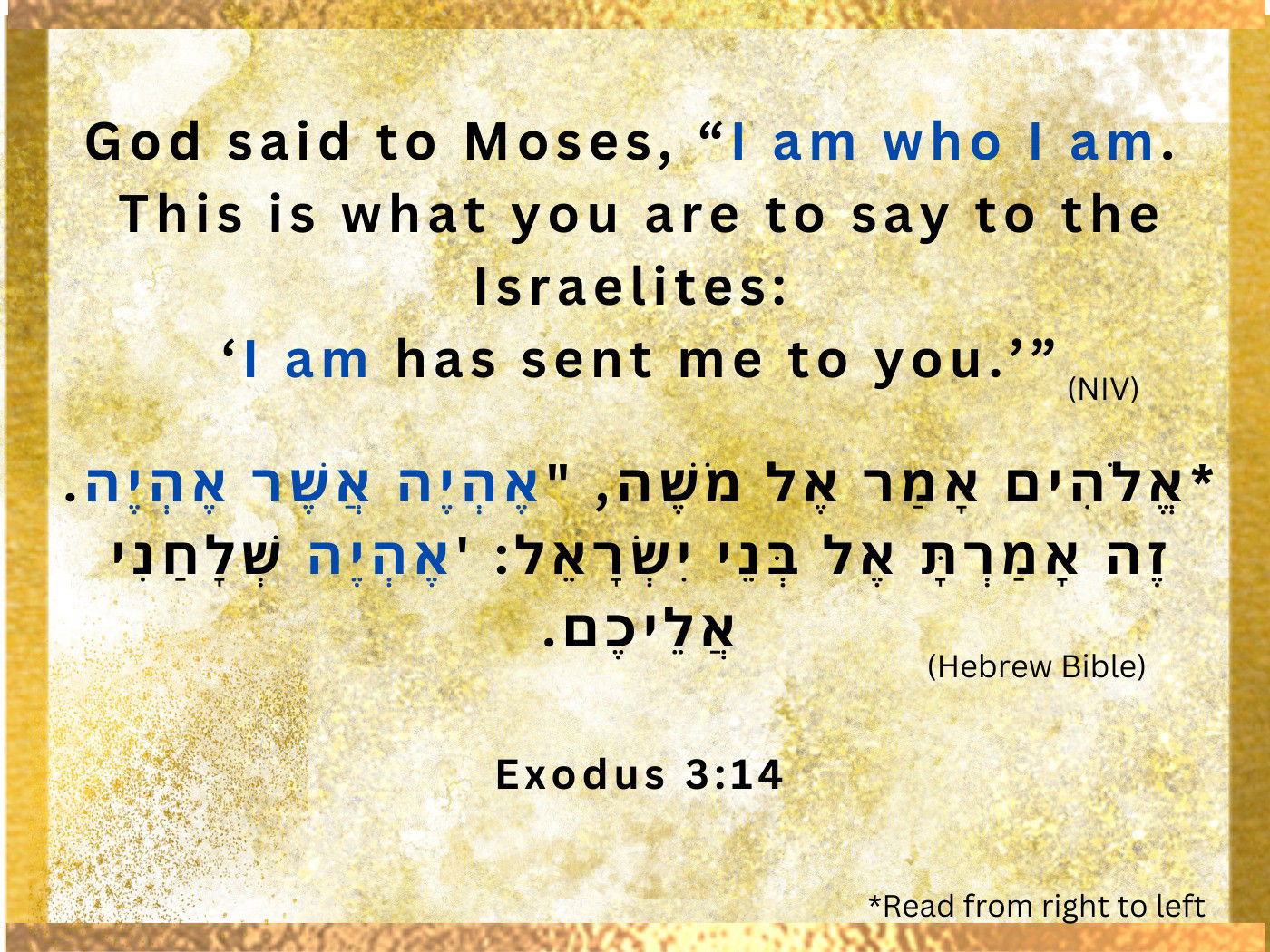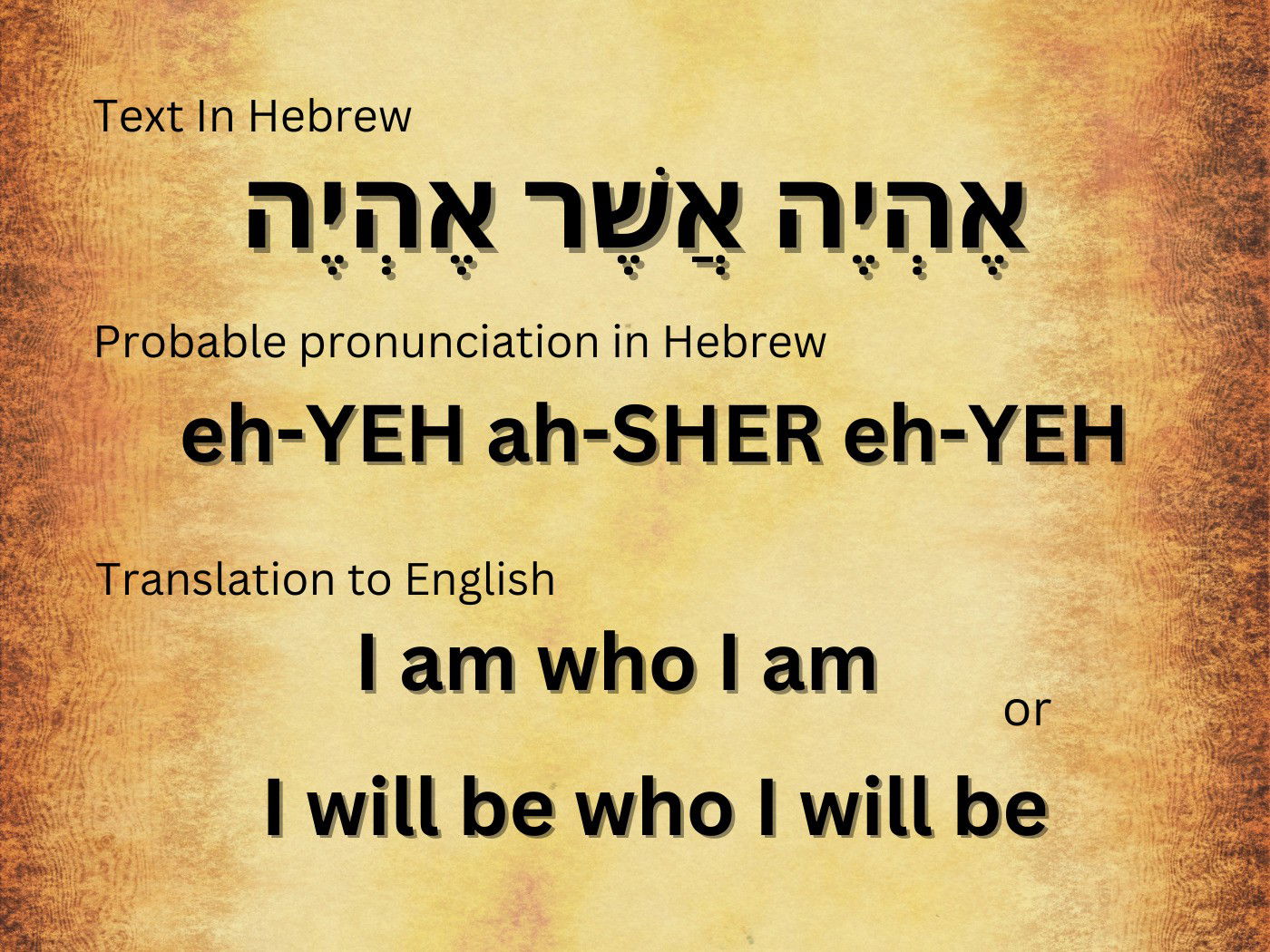YHWH or YHVH is the Hebrew name with which God identified Himself to Moses on Mount Horeb (Exodus 3:14). The sacred tetragrammaton, pronounced as Yahweh, consists of 4 consonants and means: "I AM WHO I AM" or "I WILL BE WHAT I WILL BE".

🌟 Great news! Join our new WhatsApp Faith Community and start your day with uplifting Bible verses, encouragement, and hope. 💖
👉 Tap here to join Bibliaon Bible Daily now and be inspired daily!
The true name of God
YHWH, means 'I am who I am' or 'I will be what I will be.' The breadth of this name prevents us from limiting or labeling God in the simple terms that any human explanation might attempt. It presupposes that the name expresses the essence and characteristics of God, and that He manifests the nature of His name through actions.
- God is the Eternal - Without beginning or end, the Lord is self-existent. He is the One through whom all things that exist came into being. He is the One who always has been, is, and will be eternally.
- God is Immutable - We are surrounded by instability and imbalance in many aspects, but God is unchanging and constant. Despite all change, God remains permanent.
- God is Absolute and Independent - He is self-sufficient, all-powerful, magnificent in love and mercy. The Lord fulfills His promise of salvation to those who believe.
- God is Incomprehensible - Despite revealing Himself and relating to His creation, God is inexplicable, unfathomable, worthy of reverence and admiration, for He is far beyond human understanding.
- God is Unique and Unequalled - The Lord is incomparable to anyone, nor to any other god (whether Egyptian or of other peoples). He is the Supreme Creator of the universe and sustainer of all things.
Read about all of the other names of God in the Bible.
Origin of the name YHWH (Yahweh)
According to the Bible, YHWH was the name through which God revealed Himself when Moses asked for His name. This event took place on Mount Horeb, where Moses, while tending sheep, encountered a burning bush that was not consumed. Unable to comprehend this phenomenon, he approached and had his first encounter with the Creator God (Exodus 3:4-6).
In Exodus 3, God informs Moses about His plan to deliver the Hebrews from Egypt, thereby fulfilling His promise in the covenant made with Abraham, Isaac, and Jacob (Exodus 2:23-25).
God sent and encouraged Moses to speak to the Jewish people and to Pharaoh. However, Moses did not yet fully know the God of his ancestors. Therefore, he asked God what His name was, the God who was speaking to him:
The verb "to be" in Hebrew - "hayah" or "ehyeh" in the first person singular - shares the same verbal root as the tetragrammaton (YHWH). Thus, due to this similarity, YHWH could have been derived from the resemblance to the term "to be," or it might have been used as a deliberate linguistic device by the Lord.
I AM WHO I AM
The most common translation for God's response to Moses, "I AM WHO I AM," is one of the most well-known passages in the Torah.
In the Hebrew Bible, these terms were originally written in ancient Hebrew without vowels. Additionally, the pronunciation of the name of God nearly disappeared because it was not spoken aloud.
Usually, YHWH was substituted by titles such as Adonai (Lord) and other divine specifications attributed to God (Elohim, "The Name," etc.).
Later, with the introduction of the vowels from Adonai and Masoretic accents (these are the signs below and above the letters), attempts were made to record the pronunciation of the divine name. These alterations reminded readers to read/say "Adonai" instead of "YHWH".
Read God is Omnipotent, Omniscient, and Omnipresent (Bible Study)
Variants of YHWH
The Tanakh, corresponding to the Old Testament (OT) of the Protestant Bible (excluding the deuterocanonical books of the Catholic Bible), was written in Ancient Hebrew. In this linguistic record, words lacked vowels, and their pronunciation was recognized only through oral usage.
The main reasons for prohibiting the use of YHWH, both in speech (reading) and in writing, were:
- Reverence for the Name of God
- The literal interpretation of the commandment "not to use the name of God in vain" (Exodus 20:7) Even scribes and translators would copy/translate the tetragrammaton only after purifying themselves, changing ink and pens, such was the respect for the name of God.
Substitution and translations of YHWH
This divine name, in particular, was considered so sacred and revered by Jews that it ceased to be pronounced, except on very solemn occasions. Traditionally, in public readings, the tetragrammaton was replaced by "Adonay" (the LORD) or "HaShem" (The Name). This practice was also adopted by scribes and translators into different languages.
In the Septuagint, the Greek translation of the Hebrew Bible, YHWH was replaced by the word "kuryos" (Lord), a direct equivalent of "Adonay" - Lord.
In the mid-10th century AD, the Masoretes (Jewish scribes) introduced the vowels of ADONAY into YHWH, with the purpose of reminding the reader to replace the sacred Name of God with Adonai.
Over time, the original pronunciation has been lost, which is why the exact vowels of the tetragrammaton cannot be accurately defined. Therefore, YHWH currently has many possible translations (Yahweh, Yahwoh, Jehovah, Javé, Yavé, Yehowah, Yeowa, etc.).
Occurrences of YHWH in the Bible
From the beginning to the end of Scripture, there are numerous occurrences of names and titles referring to the Lord God. Progressively, the God of Abraham, Isaac, and Jacob made Himself known as the one God, unrivaled, as the timeless One who acts sovereignly.

Old Testament
Throughout the entire Old Testament, there are numerous occurrences of the expression YHWH, including combined in compound names, referring to specific attributes of God:
- Jehovah Sabaoth - Lord of Hosts (Psalm 84:12)
- Jehovah Jireh - The Lord will provide (Genesis 22:14)
- Jehovah Shalom - The Lord is Peace (Judges 6:24)
- Jehovah Rapha - The Lord who heals (Exodus 15:26)
- Jehovah Tsidkenu - The Lord is our Righteousness (Jeremiah 23:6)
- Jehovah Shammah - The Lord is there (Ezekiel 48:35)
- Jehovah Nissi - The Lord is my banner (Exodus 17:15)
New Testament
According to the Gospel, God Himself came into the world in the person of the Son, Jesus Christ. Manifesting divine existence in flesh (Colossians 2:9), Jesus assumed the identity of YHWH for Himself. He affirmed Himself as the "I AM" on several occasions:
- I am the way, the truth, and the life (John 14:6)
- I am the good shepherd (John 10:11)
- I am the light of the world (John 8:12)
- I am the bread of life (John 6:35)
- I am the true vine (John 15:1)
- I am the door (John 10:7)
- I am the Alpha and the Omega, the First and the Last, the Beginning and the End (Revelation 22:13)
Read also: All of Jesus' Titles And Names in The Bible
One of the most emblematic occasions of Jesus' self-identification with "I am" is recounted in the Gospel of John 8:28-58.
Jesus answered, "Truly, truly, I say to you, before Abraham was, I am."
- John 8:58
Upon hearing Jesus' association with the very name of God, the Jews picked up stones to stone him, for they understood that Jesus was appropriating the Name of the Most High Creator God. And indeed He is the Lord:
Therefore God has highly exalted him and bestowed on him the name that is above every name, so that at the name of Jesus every knee should bow, in heaven and on earth and under the earth, and every tongue confess that Jesus Christ is Lord, to the glory of God the Father.
- Philippians 2:9-11


